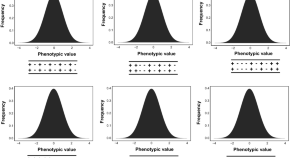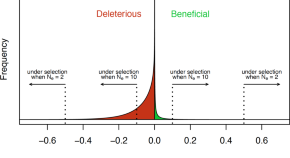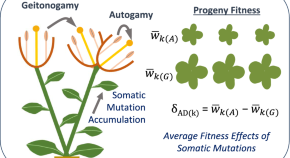Analysis of the leaf metabolome in Arabidopsis thaliana mutation accumulation lines reveals association of metabolic disruption and fitness consequence
Authors (first, second and last of 8)

Collection
Mutation is often referred to as "the ultimate source of new variation" on which selection acts, yet mutation is not often the centerpiece of evolutionary considerations. With advances in genomics, molecular genetics and computational approaches, our ability to detect and evaluate the effects of mutation is occurring at a rapid rate. Such advances have demonstrated that mutation rates are variable by species, populations, areas of the chromosome and across different ecological environments. Data on distributions of mutational effects on phenotypes, particularly fitness phenotypes, are further enhanced by genomic, theoretical computational advances and taking these problems into ecological settings.
We have brought together ideas from theoretical, molecular, field, computational and various experimental approaches across organisms and systems and seek additional submissions for this growing topical collection of already well-cited articles.
Students and Early Career Researchers are especially encouraged to submit to this Topical Collection.
Keep up with the latest Evolutionary Ecology content by signing up for Journal Alerts today!
Prof. Fenster’s work is broadly conceptually driven, focused on the elucidation of evolutionary process using plants as model organisms. He uses a combination of approaches incorporating statistical, ecological, quantitative genetic and molecular marker based techniques to address the questions of his research program.
Prof. Murren is interested in how phenotypes of organisms are built and interact with the environment. This leads to employment of ecological, developmental, genetic and statistical tools to ask questions about the evolution of phenotypic form. She has examined systems from orchids, to invasive species, to Brassica species, and Mimulus species. Prof. Murren's current research focuses on natural accessions and mutant lines of Arabidopsis thaliana.










